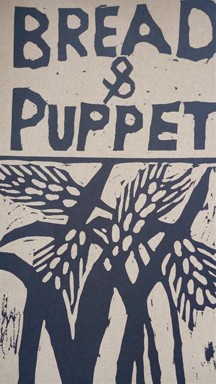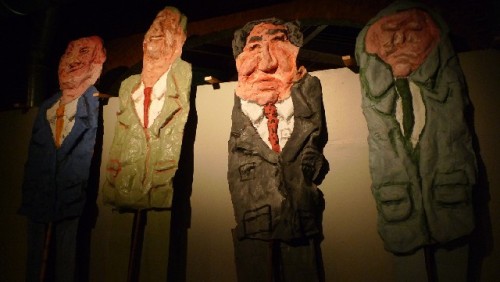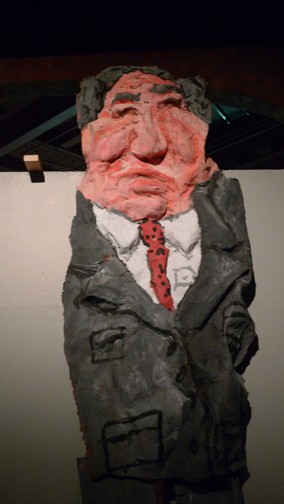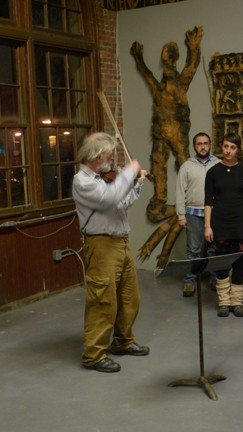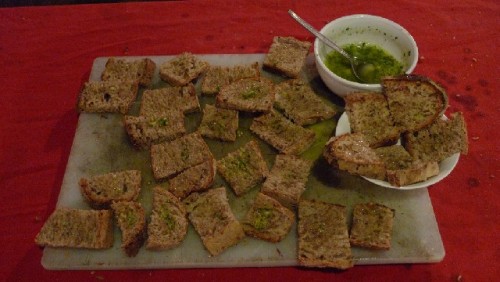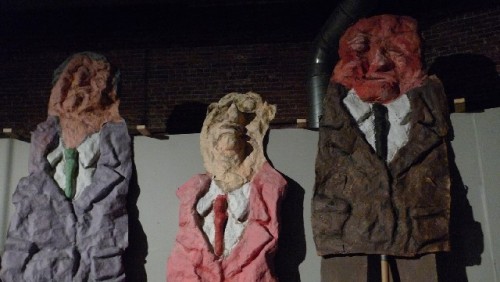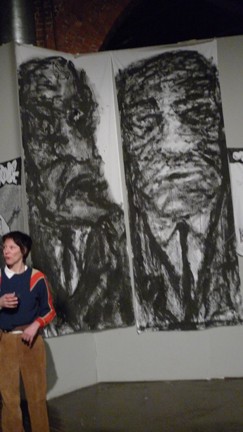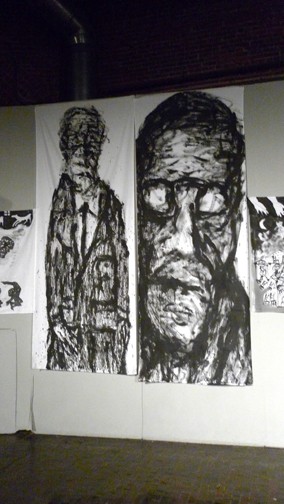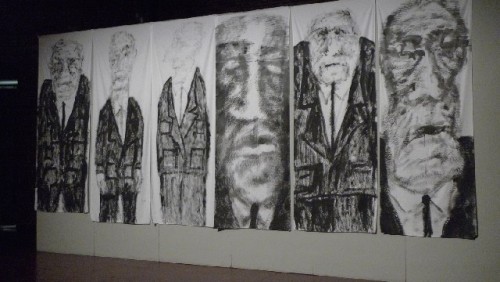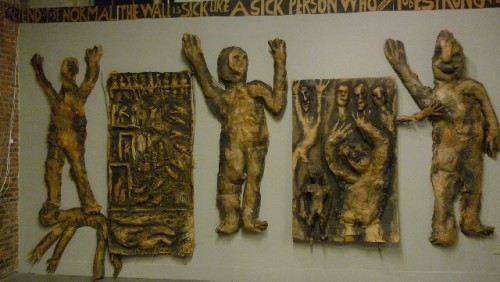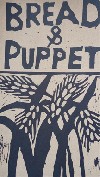Bread & Puppet Theater's Sourdough Philosophy
Boston Center for The Arts Cyclorama Hosts
By: Mark Favermann - Jan 27, 2009
The Bread and Puppet Theatre 2009
Sourdough Philosophy
At The Boston Center for the Arts
Jan.29-Feb.1, 2009
Spectacle Thursday-Sunday at 7 PM
Circus Saturday & Sunday at 3 PM
Tickets are $5 to $12
Call 1-866-811-4111
www.bcaonline.org
The Bread and Puppet Theatre was founded by Silesia-born Peter Schumann in 1963 on New York's Lower East Side. From its very beginning with rod puppets, it focused upon human and political issues while being visually and theatrically entertaining. It soon integrated sculpture, music, dance and language into its productions. As the puppets grew larger and larger, children and adults from the community were included as participants. Many performances were held in the streets. During the Vietnam War, Bread & Puppets staged processions and pageants involving hundreds of people. In 1970, Schumann moved to Vermont as the theatre-in-residence at Goddard College.
In Vermont, Schumann, his family and his company learned to live with the land combining their art and puppetry with gardening and bread baking. Here, their environment influenced their artistic growth. In 1974, bread & puppet moved to Glover, Vermont in the Northeast Kingdom of Vermont. A 140 year old barn was converted into a museum for retired puppets and Schumann's other art pieces. Throughout the 90's (until 1998), a huge annual 2 day outdoor festival was held, "Our Domestic Resurrection Circus." The festival was canceled became it became just too large and too unruly. Even with the best of intensions, unfortunately peace and love did not always prevail.
During the Vietnam War in the 60's and 70's, The Bread & Puppet Theater became a frequent participant in anti-war events. The group added pageantry to a bland demonstration, theatre to a mass meeting. Their's was a soulful statement written in art that few others seem to get right during this sad era. Bread & Puppet was an art of activism, an art of commitment. It was a personal art that was universal. It was spectacle with a human touch.
By the 80's, the puppets had themselves become symbolic of activist pacifism and American political theatre. Bread & Puppet's massive puppet figures were the giant haunting images of the June 1982 Disarmament Parade in New York City. Their memorable spectre was as much an aspect of the event as the speeches and banners of the marchers.
In a historical sense, the term "agitiprop theatre" can be applied to The Bread & Puppet Theater. This concept was a highly politicized leftist theatre that originated in Europe in the 1920's and 1930's. It spread to the US as well with the works of Bertolt Brecht as notable examples. overtime, the term "agitprop" was used to describe and to define any kind of leftist politicized art. Yet, the subtle artistic simplicity of Bread & Puppet goes beyond the often overbearing agitprop expression.
Puppetry is the synthesis of all the arts. It is at once storytelling, acting, music, dancing as well as painting and sculpture. Ritual, drama and comedy are all parts of puppetry. Schumann and his assistants use these tools to craft social and/or political messages. At times these statements are overwhelmingly beautiful, visually startling and wonderfully mysterious.
To support themselves, the troupe tours new and old productions both around the United States and throughout the world. It also sells posters and publications--everything at reasonable prices. Schumann has always believed in cheap art as opposed to expensive art. To him and his followers, art is part of life, not a special or expensive treat. Currently, at the Boston Center for the Arts, there is a large exhibition of Peter Schumann's art.
The exhibition's pieces range from expressionistically drawn black and white establishment or authority figures and massive heads to painted sculptural figures and elements. The drawings are strongly rendered while the papier mache sculptures are set as narrative friezes. The sculpture is placed in a separate area. There are written phrases placed above the vignette pieces. The controversial theme of these pieces is on the recent Gaza conflict. War is a hard thing to visually portray.
Each performance is a group participatory event. Bread & Puppet encourages local participation in each of its massive spectacles or more modest performances. The performances focus upon social, political or environmental issues as well as sometimes just mundane trials of daily life. There are strong vestiges of the 1960's. there is an almost nostalgic aspect to Bread & Puppet. However, as Peter Schumann seems to understand extremely well, there are always things in any age to protest.
After every show, the company distributes a just baked rather rough sourdough rye bread and aioli (garlic sauce). To The Bread & Puppet Theatre, bread and art are the staff of life.

